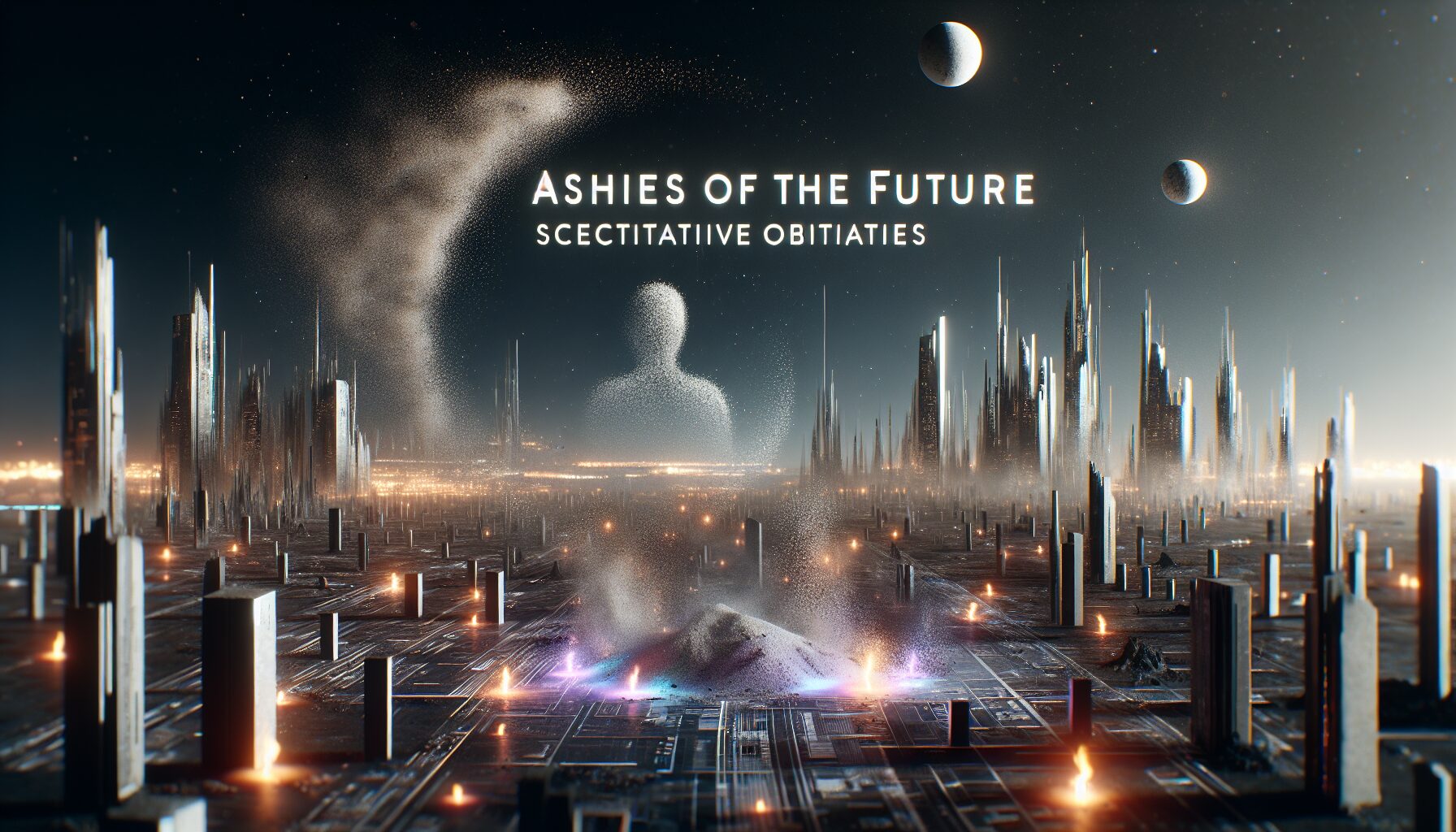In an era where the boundary between life and death blur, where technology and imagination intertwine, speculative obituaries offer a glance into a world that might be. The tradition of commemorating the departed takes on a futuristic twist as we delve into Ashes of the Future.
The Art of Imagined Farewells
Speculative obituaries are an exercise in creativity, a literary journey where writers explore the hypothetical passings of notable figures and fictional characters. But what makes these articles compelling is their power to reflect societal fears, hopes, and the ever-persistent question, “What if?”
“Obituaries traditionally tell of lives fully lived, but speculative obituaries dare to imagine the final pages of lives yet to come or those that were never real.”
— New York Times
From predicting technological breakthroughs to envisioning political outcomes, imagined obituaries challenge readers to think beyond the present. They serve not only as a creative outlet but as a mirror reflecting our cultural zeitgeist.
Predicting the Passage of Titans
Consider the potential obituary of a tech giant whose innovations reshaped the 21st century: “In the year 2050, we bid farewell to Elon Musk, the visionary who took humanity to Mars.” Such essays would reflect both admiration and critique, exploring the impacts of his ambitions.
- Space Exploration: Focusing on Musk’s dream of colonizing Mars and revolutionizing space travel—what milestones might have been achieved?
- Technological Advancements: Speculating on breakthroughs in AI or renewable energies driven by his ventures.
- Ethical Dilemmas: Addressing potential moral and ethical implications of his work on society.
Through these narratives, speculative obituaries aid in shaping public memory and forecasting the legacy of influential figures.
Fictional Futures and Fates
The realm of speculative obituaries doesn’t restrict itself to real-world personas; it boldly ventures into fiction. Imagining an obituary for a character like Harry Potter, the boy who lived, invites reflection on themes of destiny, heroism, and the passage of time.
“Harry Potter, the savior of the wizarding populace, passed peacefully in his enchanted home, surrounded by beloved family and friends.” This hypothetical obituary allows for explorations into how his lifetime battles with evil, friendships, and magic might influence future generations.
Writing Our Own Endings
Speculative obituaries compel us to write our own endings. What will the world remember of us? Will we be seen as pioneers, provocateurs, or simply pawns of the history we attempt to shape?
This genre challenges authors and readers alike to assess their perceptions of destiny and agency. As acclaimed author Neil Gaiman observed:
“The universe knows someone who’s still curious about the ending of a story.”
— The Guardian
A Reflective Tool for Society
In an amalgam of reality and imagination, speculative obituaries also act as cautionary tales. They allow a reflective space for considerations of environmental possibilities, technological ethics, and cultural transformations.
- Environmental Concerns: What might the obituary of Earth sound like if climate change remains unchecked?
- Technological Ethics: Imagining the obituary of privacy in an increasingly surveilled world.
- Cultural Transformations: Speculating on the end of specific societal norms or institutions in future generations.
By engaging with these narratives, societies can question their current paths, exploring alternate routes that might avert tragic endings.
Embracing the Narrative
Ashes of the Future reminds us of the power and responsibility of narrative. Whether through mystical musings or pragmatic ponderings, speculative obituaries weave a complex tapestry of potential futures.
As we oscillate between reality and fiction, may these imagined obituaries not only continue to fascinate and forecast but also spur conversation and change—but the questions remain: Are we the authors of tomorrow’s epitaphs? And what story will they ultimately tell?

Comments